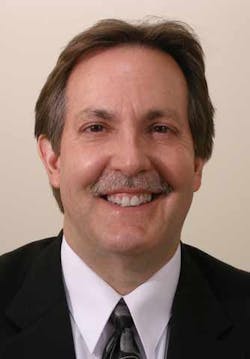A letter sent to me recently from Mike Hughes about mom-and-pop stores made me take notice, and will certainly stir up some debate.
In particular, the owner of Tire Time Rentals in Big Spring, Texas, implied that praising large retailers for continued growth was a bad thing.
Hughes singled out Discount Tire Co. Inc., Pep Boys-Manny, Moe & Jack and Big O Tires for their ability to buy and sell tires more cheaply because of their size. Discount Tire is the second-largest independent tire store chain in the United States with 800 stores. Only TBC Corp., which owns dozens of Big O Tire stores among its 837 retail outlets, has more.
“Where is your support for us small guys?” he wrote. “You know, the little guys who built the industry into what it is now, the little guys who made the brands recognized, the ones who paved the way for the big guys?”
Single-store outlets make up 62% of the 30,000 independent tire dealerships in the U.S. Hughes is right. They are the lifeblood of the industry. So I called Hughes to find out what all the fuss was about.
After a few minutes, it became apparent that he was angry at the tire manufacturers for giving the large retailers a price advantage. He was not blaming large tire dealers for leveraging better pricing out of the relationship.
“I don’t have a problem with people growing,” he told me. “More kudos to them. I don’t begrudge any of them doing this.
“My complaint is the unlevel playing field for the small independent guy.”
I agree that the playing field is not level. It is fair, however. Buying in bulk is a basic business principle that helps both parties. Large retailers can sell their products for less. Manufacturers can run their plants more efficiently and save on transportation costs — and they still make a profit on the products.
That is why what Hughes said next surprised me. He had asked a sales representative why he could buy the same tires from Discount Tire and Walmart stores for less than or close to the price the supplier was offering.
Here’s what he said the rep told him:
“Well, we don’t make anything off them.”
Here’s what Hughes said he heard:
”We make all our money off you little guys to pay the rent, salaries, utilities and any other expense so we can help the big guys put you out of business.”
I understand Hughes’ frustration. Poor communication from his suppliers only adds to the confusion. But economies of scale are part of a free enterprise system.
Hughes knows this. He also knows what to do about it. He sells and rents brands no one else in his area offers, and suggests other dealers do the same.
“There are a lot of good brands out there,” he said. He even suggests using tire distributors that don’t supply the large retailers.
Thirty years ago, Hughes began his rent-to-own tire company, which successfully expanded into multiple franchises. He sold his stake in all but one of the stores over time. So when he says “carve a niche out for yourself,” his advice comes from experience.
Ultimately, “trying to please your customer” is the key, and is why he is still in business after all these years. If he doesn’t have the tire in stock, he doesn’t just call one distributor. He shops for the best price.
I’ll give the last words to Hughes.
“If I could speak to the major American tire manufacturers, this is what I would say.
“Right now, there is a tire salesman selling someone a foreign tire. Right now, there are some tire manufacturing employees that are going to lose their jobs, and they don’t know it. Right now, there is a business man thinking about shutting his doors forever.
“Right now, there are millions of our dollars going overseas, never to return. Right now, there are thousands of tire shops that wish they could sell American products, but they can’t because you have sold America to the highest volume, biggest bidder in an effort to streamline and concentrate your products distribution.
“This is all happening, right now. It will go on tomorrow and the next day and the one after that, until the foreign tires take completely over or you change.”
If you have questions or comments, please e-mail me at [email protected].




